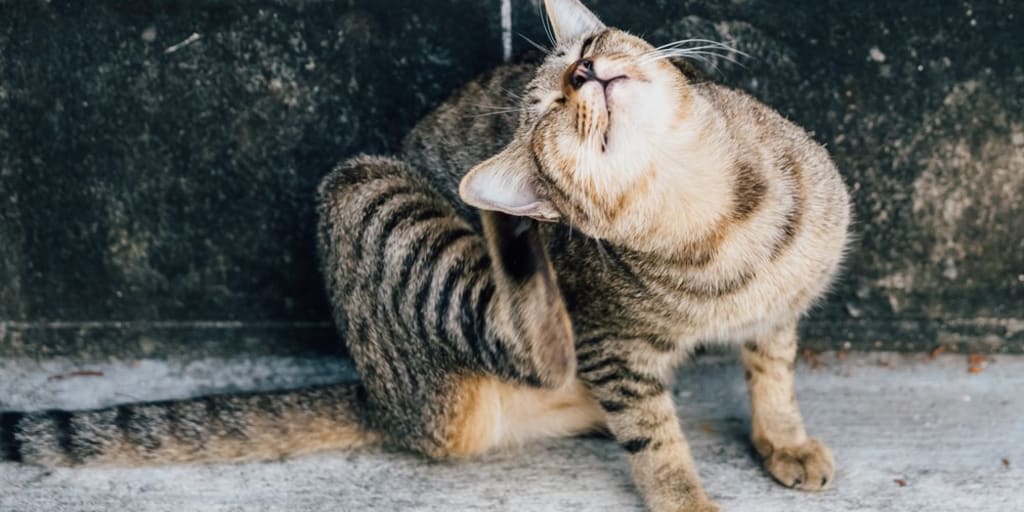Unveiling the Unexpected: How Cats Can Benefit Allergy Sufferers
Exploring the Surprising Ways Cats Bring Joy and Relief to Allergic Individuals

Cats have long been a subject of fascination and adoration for many people around the world. However, for individuals with allergies, the prospect of owning a cat can be daunting. It's commonly believed that cats are a major source of allergens that can trigger allergic reactions. Surprisingly, recent studies have revealed some unexpected benefits that cats can bring to allergy sufferers. In this article, we will explore how cats can be beneficial for allergies and how owning a cat may not be out of reach for those who love felines but suffer from allergies.
Hypoallergenic Breeds
While it's true that some individuals are highly allergic to cats due to a specific protein found in their saliva, dander, or urine, it's important to note that not all cats produce the same level of allergens. Certain cat breeds are considered hypoallergenic, which means they produce fewer allergens or have a different type of protein that is less likely to cause allergic reactions. These hypoallergenic breeds can be a viable option for individuals with allergies who still want to experience the joy of owning a cat.
Some popular hypoallergenic cat breeds include the Sphynx, Devon Rex, Balinese, Siberian, and Russian Blue. These breeds often have less fur or produce fewer allergenic proteins, making them more tolerable for allergy sufferers. However, it's essential to spend time with the specific breed before making a decision, as individual allergies can vary.
Reduced Allergen Spread
While it's true that cats produce allergens, they also tend to be meticulous groomers. Cats spend a significant amount of time grooming themselves, which can actually reduce the spread of allergens throughout the house. By regularly cleaning their fur, cats effectively trap and remove allergens from their bodies, preventing them from becoming airborne or settling on surfaces. Consequently, this grooming behavior may result in lower overall allergen levels in the household, making it more manageable for individuals with allergies.
Emotional Support
Beyond the physical benefits, cats provide emotional support and companionship, which can be particularly beneficial for individuals with allergies. Many studies have shown that interacting with animals, such as petting or playing with cats, can have a calming effect and help reduce stress and anxiety. This emotional support can be especially important for allergy sufferers, as stress can often worsen allergic reactions. Owning a cat can provide a soothing presence and contribute to overall well-being, making it easier to manage allergies in a positive mindset.
Immune System Stimulation
Contrary to popular belief, exposure to cats and their allergens can actually help build immunity and reduce allergic reactions over time. Studies have found that early exposure to cats and other pets during childhood can help train the immune system to become less sensitive to allergens. This exposure may reduce the risk of developing allergies or asthma later in life. Additionally, some research suggests that exposure to pets can lead to changes in the immune system, resulting in a decrease in the severity of allergic reactions.
Therapeutic Effects
Cats have been known to provide therapeutic benefits to individuals with allergies, both physically and mentally. Studies have shown that interacting with cats can help lower blood pressure, reduce heart rate, and alleviate feelings of loneliness and depression. The act of petting a cat releases endorphins, which are known as "feel-good" hormones, promoting a sense of well-being and relaxation. These therapeutic effects can be particularly beneficial for allergy sufferers who may experience additional stress due to their condition.
Improved Air Quality
Believe it or not, owning a cat can actually improve the air quality in your home. While cats do produce allergens, they also act as natural air filters. As they move around the house, their fur collects dust, pollen, and other airborne particles, effectively trapping them. This can help reduce the overall allergen load in the air and improve the quality of the indoor environment, benefiting individuals with allergies. Regular grooming and cleaning of the cat's bedding can further minimize the presence of allergens and maintain a healthier living space.
Enhanced Social Connections
Cats are known for their unique personalities and ability to form strong bonds with their owners. Owning a cat can help facilitate social connections and interactions with others, which can be particularly valuable for individuals with allergies. Cat owners often find themselves engaging in conversations with other cat lovers, whether it's at the park, during vet visits, or online communities. This shared interest in cats can serve as a catalyst for building friendships and connecting with like-minded individuals, creating a sense of community and support.
Allergy Management Strategies
For individuals with allergies who are determined to own a cat, there are various strategies to manage and minimize allergic reactions. These strategies include:
a. Regular grooming: Brushing your cat frequently can help remove loose fur and reduce the amount of allergens in their coat.
b. Cleaning routines: Regularly vacuuming carpets, dusting surfaces, and using air purifiers with HEPA filters can help remove airborne allergens and reduce their accumulation in the home.
c. Restricted areas: Establishing specific "cat-free" zones, such as bedrooms or certain areas of the house, can provide allergy sufferers with a space to retreat and minimize exposure to allergens.
d. Medication and treatment: Consult with an allergist who can recommend appropriate medications or immunotherapy options to manage allergic reactions and build tolerance over time.
While cats have been traditionally associated with triggering allergies, it is important to recognize the potential benefits they can offer to allergy sufferers. Hypoallergenic breeds, reduced allergen spread, emotional support, immune system stimulation, therapeutic effects, improved air quality, and enhanced social connections are all compelling reasons why individuals with allergies can consider owning a cat. By implementing proper allergen management strategies and seeking guidance from medical professionals, it is possible to enjoy the companionship and many positive aspects that cats bring, even for those with allergies.
About the Creator
The Pet Hub
Pets bring immense joy and companionship to our lives.






Comments
There are no comments for this story
Be the first to respond and start the conversation.